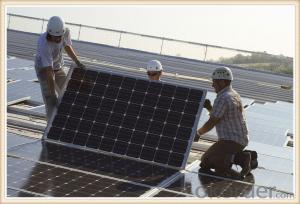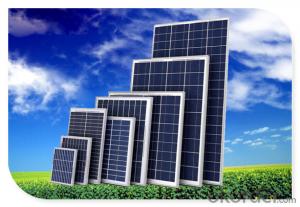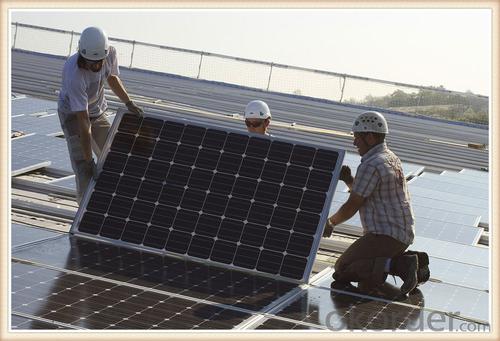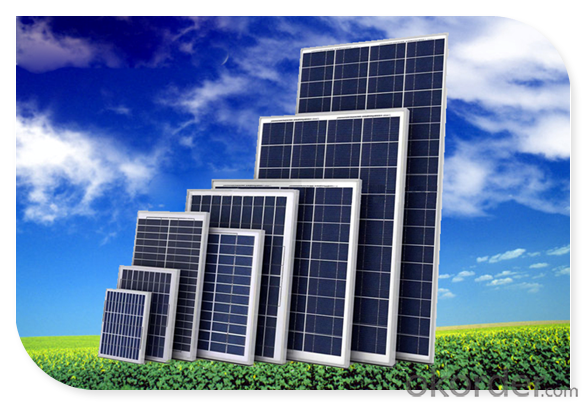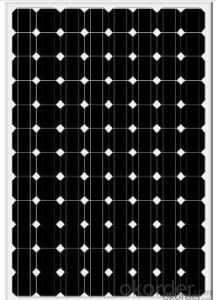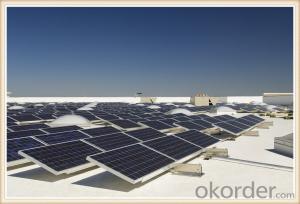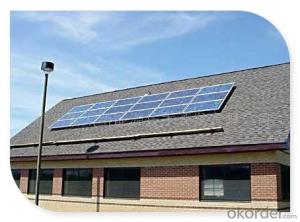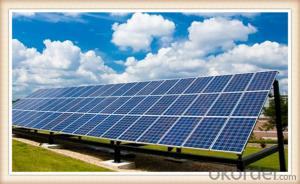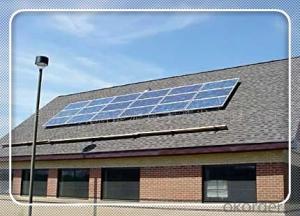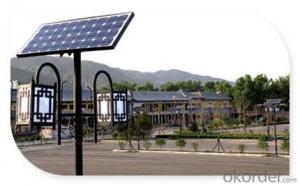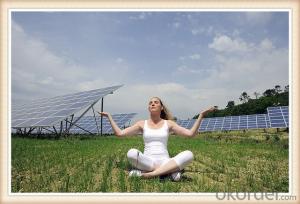Solar Panels Soft - 75w Efficiency Photovoltaic Chinese Solar Panels for Sale 5-200w
- Loading Port:
- China main port
- Payment Terms:
- TT OR LC
- Min Order Qty:
- 10000 watt
- Supply Capability:
- 100000 watt/month
OKorder Service Pledge
OKorder Financial Service
You Might Also Like
Specification
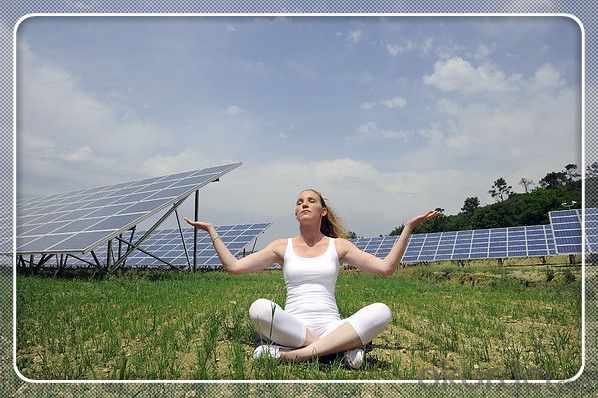
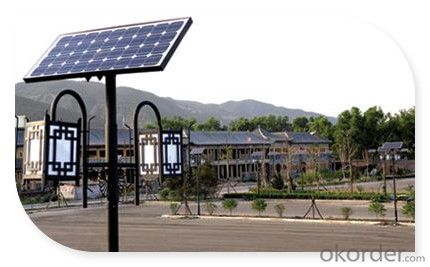
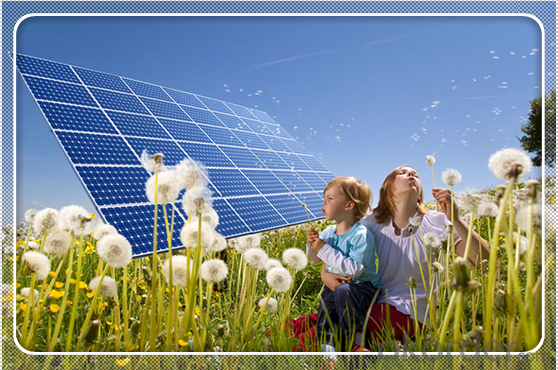
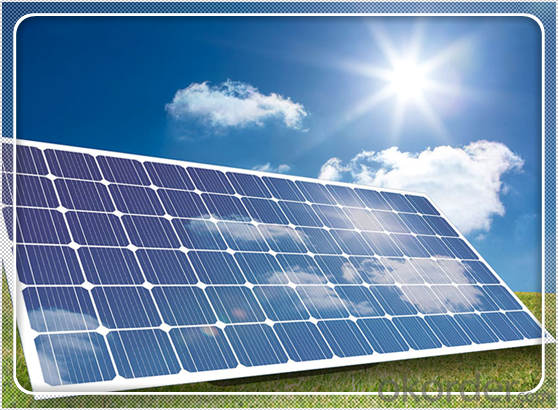
Solar Module Introduction
Solar Module is the core part of solar PV power systems, also is the highest value part of it. The function of Solar Module is to convert the sun's radiation to electrical energy, or transfer it to battery and store in it, or to drive the load running.
The Product has been widely used in space and ground, it mainly used for power generation systems, charging systems, road lighting and traffic signs areas. It could offer a wide range of power and voltage, and with high conversion efficiency, and long service life.
Solar modules use light energy (photons) from the sun to generate electricity through the photovoltaic effect. The majority of modules use wafer-based crystalline silicon cells or thin-film cells based on cadmium telluride or silicon. The structural (load carrying) member of a module can either be the top layer or the back layer. Cells must also be protected from mechanical damage and moisture. Most solar modules are rigid, but semi-flexible ones are available, based on thin-film cells. These early solar modules were first used in space in 1958.
Electrical connections are made in series to achieve a desired output voltage and/or in parallel to provide a desired current capability. The conducting wires that take the current off the modules may contain silver, copper or other non-magnetic conductive transition metals. The cells must be connected electrically to one another and to the rest of the system. Externally, popular terrestrial usage photovoltaic modules use MC3 (older) or MC4 connectors to facilitate easy weatherproof connections to the rest of the system.
Secification
Model Type | |
Peak Power-Pmax(W) | 5-200W |
Open Circuit Voltage-Voc(V) | 44.2 |
Maximum Power Voltage-Vmp(V) | 36 |
Short Circuit Current-Isc(A) | 5.4 |
Maximum Power Current-Imp(A) | 5 |
Maximum System Voltage | 1000V DC |
Maximum Series Fuse Rating | 10A |
Power Tolerance | -1~+3% |
Temperature Coefficients of Pmax | -0.45%/℃ |
Temperature Coefficients of Voc | -0.348%/℃ |
Temperature Coefficients of Isc | 0.031%/℃ |
Nominal Operating Cell Temperature | 44.5±2℃ |
Standard Testing Condition(STC) | Irradiance:1000W/m²;Temperature:25℃;AM=1.5 |
Qualification Test Parameters | |
Operating Temperature | -40℃~+85℃ |
Storage Temperature | -40℃~+85℃ |
Pressure Bearing | ≥5400Pascal/m² |
Wind Bearing | ≥5400Pascal/m² |
Mechanical Characteristics | |
Cell Size | Mono 125*125mm±0.5 |
No.of Cells | 72pcs(6*12) |
Dimension | 1580*808*40mm |
Weight | 15.5Kg |
Glass | 3.2mm High Transmission,Low Iron |
Frame | Anodized Aluminum Alloy |
Junction Box | IP65Rated |
Internal Diodes | 3 Bypass Diodes |
Cable | 1*4.0mm² Length 900mm |
Images
Packing & Shipping:
We have rich experience on how to pack the panels to make sure the safety on shipment when it arrives at the destination.
The normal size is packed by 25pcs/ carton / pallet. Paper carton for FCL shipping and wood carton for LCL shipping.
Warranty:
For c-Si panel: 25years output warranty for no less than 80% of performance, 10 years output warranty for no less than 90% of performance. Free from material and workmanship defects within 5 years.
For a-Si panel: 20 years output warranty for no less than 80% of performance, 10 years output warranty for no less than 90% of performance. Free from material and workmanship defects within 2 years.
FAQ:
(1)What price for each watt?
It depends on the quantity, delivery date and payment terms.
(2)What is your size for each module? Can you tell me the Parameter of your module?
We have different series of panels in different output, both c-Si and a-Si. Please take the specification sheet for your reference.
(3)Can you provide the peripheral products of the solar panels, such as the battery, controller, and inverter? If so, can you tell me how do they match each other?
Actually we are only manufacturer of solar panels, but we could try to source them for you in China if you need. We could provide you an optimal system design to instruct you how to install.
(4)Do you have the CE, TUV, UL Certification?
We’ve already passed all the tests, and any certificate is available.
(5)Have you ever sold your products to companies in my country?
Of course, we have customers in all general PV markets, but I think we should expand our market share along with the market growth.
(6)When did your company set up? You are a new company, how can I believe your quality?
We entered into Solar PV industry in 2005, now we have several plants in manufacturing of a-Si and c-Si panels, and our capacity is 220MW per year. Till now we have already passed all the tests by authorized laboratories, e.g. TUV, VDE, UL.
(7)Can you help us install the module if we cooperate with you?
We haven’t entered into installation sector, but we have the plan in near future.
(8) How do you pack your products?
We have rich experience on how to pack the panels to make sure the safety on shipment when it arrives at the destination.
(9) Can you do OEM for us?
Yes, we can.
(10)Can we visit your factory?
Surely, I will arrange the trip basing on your business schedule.
- Q: is this fact true? - its a limitation to solar panels during summer when it's in extremly hot countrie. I've heard it from my science teacher .. please give detail if you have any and any more benefits/limitations is welcomed .. Thank you :) !
- So what do higher temperatures do to solar photovoltaic panels? As temperatures rise, the efficiency of solar panels decreases. Heat causes electrical resistance to the flow of electrons. On days where the temperature is more than 75 degrees, the electrical resistance makes the voltage fall thereby producing less kilowatts per hour. Your roof is much hotter than temperatures on the ground. That’s why solar panels are not mounted flat to a roof. There’s usually a few inches of spaces between the panels and roof so air flow can easily pass through and cool the panels down. There are some photovoltaic panels that are designed specifically to operate in hotter temperatures. These panels have a higher temperature coefficient. This is especially important in high heat climates like Arizona or New Mexico, but probably wouldn’t make too much of a difference in New England (except maybe this year). If you do live in one of these areas, you should speak to your solar installer to make sure they are using they right equipment for your region. Please note: Solar thermal panels used to heat water can withstand high temperatures without any degradation. In fact, hotter temperatures would actually be better for these types of modules.
- Q: I have a 500 watt inverter and battery but need solar panels to run my need. I want to have enough juice to run a computer and monitor and sometimes a 5w amp. I am not sure how much power is needed to run the computer (standard desktop with 5flat screen with an additional surround sound system) though on the side of the computer it says 5 amp but I know I used to run it and monitor and surround sound with a heating blanket on the same circuit which was rated at 20 amps. My question is that I would like to go and buy some panels (cheaply as I'm unemployed) from somewhere like Harbor Freight that would meet the need of the converter to supply enough amperage. So what size panel(s) or panels would I need to run this setup? If I am correct I think 500 watts is equal to 5 amps. Would this even work? Could I run a partial system where I could run some of the stuff to take a load off? I need to lower my electric bill somehow. Thanks!
- Solar okorder in their survival discussion in the archive, this exact project was discussed at length.
- Q: What is the average size of a residential solar panel system?
- The average size of a residential solar panel system is typically around 5 kilowatts (kW), which is equivalent to approximately 20 solar panels. However, the size may vary depending on factors such as energy consumption, roof space, and individual preferences.
- Q: the solar panel works with LEDs, small bulbs,etc but neve with any dcmotor. Please help. I have a science exhibition.
- Because its not voltage related its current related. look at the start up values for the motor w respect to current. This will be listed in amps or milliamps. Then cross reference that to the output of your solar panel also listed in amps or milli amps... ;)
- Q: Can solar panels be used to heat water?
- Yes, solar panels can be used to heat water. Solar water heating systems use the sun's energy to heat water, typically through the use of solar thermal collectors. These collectors absorb sunlight and transfer the heat to water, which can then be used for various purposes such as bathing, washing, or even space heating.
- Q: I'm a student trying to design a mounting structure for solar panels. I'm reading about passive trackers so as to track the sun for optimal energy production; but I am not fully quot;seeinghow it works. Can someone please help explain it to me, or at least send me a link(s) that could help explain it well?THANKS IN ADVANCED!! [and HAPPY HALLOWEEN!!]
- It appears to be relying upon a phase change of liquid to gas to liquid to balance the system and return it to the east in the morning.
- Q: how much power is generated with solar panels? also please give me links for that information.and how much would the costs be for this alternative energy source?
- KW solar panels generate 5kwh power each day or so.
- Q: I want to know how many solar panels to use to power my AC and Water heater
- you cant use solar panels to power your house, it would take more than you can afford,and space to mount them and all the equip required to hook it up. what they don,t tell you is you need a Battery bank [24 to 48 batteries], deep cycle a inverter ,[one that will convert 2 volts to 0, at the wattage you need ] a transfer switch, rated at 00 amps wiring, a 45 watt panel is around $300
- Q: how would you build a solar panel
- i'd go to the solar panel store and buy one. It would be /0 the cost of trying to build one in my HOME shop.
- Q: How do you know when it is a good deal to buy a solar panel. For example, what is a good cost per watt, how many volts should I expect, etc.
- first okorder / example: house roof is 20' x 20' 20' = 240, so sq. inches of roof is = 57,600 say rain fall for your area is 3 per month on average. 57,600 x 3 = 72,800 of rain collected. Using the conversion chart link above, that many cubic inches of water = 750 gallons of water free per month. Look at your water bill and see how much you use. Solar panels take on average 2-20 yrs to pay themselves off, just in time for them to be replaced. Paddle wheels go on for just about forever. We still find large paddle wheel mills in the USA that are over 200 yrs old, and still functioning.
Send your message to us
Solar Panels Soft - 75w Efficiency Photovoltaic Chinese Solar Panels for Sale 5-200w
- Loading Port:
- China main port
- Payment Terms:
- TT OR LC
- Min Order Qty:
- 10000 watt
- Supply Capability:
- 100000 watt/month
OKorder Service Pledge
OKorder Financial Service
Similar products
Hot products
Hot Searches
Related keywords
